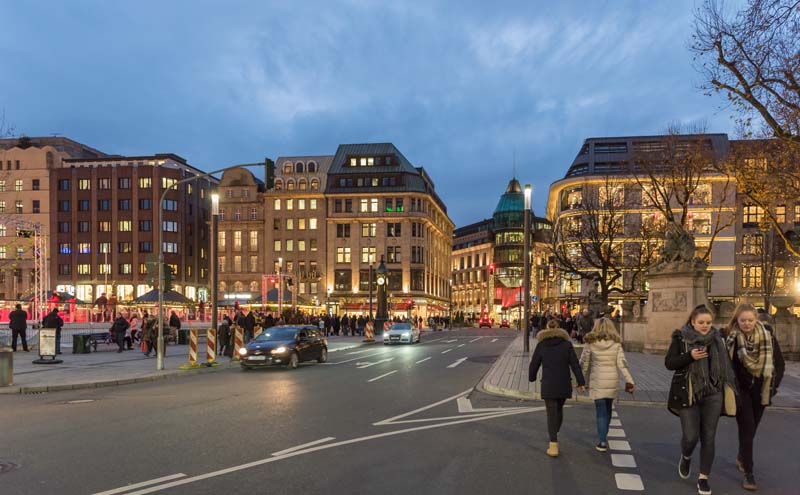
A ruling by Germany’s highest administrative court on 27 February, to allow municipalities to impose bans on older model diesel cars, is being watched closely by cities around Europe that are also struggling to stay within EU-defined air pollution limits.
The decision by the Federal Administrative Court in Leipzig was specifically in relation to Stuttgart and Düsseldorf, where city authorities had refused to impose bans, prompting the NGO German Environmental Aid (DUH) to take them to court.
DUH’s head Jürgen Resch hailed the decision as a victory for clean air in Germany, and “a debacle for the government, which sided with the car industry.”
While the response from other municipalities in Germany appeared to be mixed, Hamburg city authorities appeared eager to proceed with a ban, and said one could be in place “within a few weeks”, in comments made in The Daily Telegraph.
If other cities follow suit then there could be huge disruption to German drivers, since only 2.7 million of the country’s 15 million diesel vehicles are equipped to meet the requisite Euro 6 emissions standards. Following the decision, chancellor Angela Merkel said there were only a few cities where air pollution levels are above those permitted by the EU, and they alone should be the target for extra measures. She said a decision on how to proceed would have to follow discussion with other municipalities.
At the time of writing, many industry analysts were framing the decision as a harbinger of decline for the diesel car industry.
University of East Anglia sustainability expert Konstantinos Chalvatzis said it was a first step towards “a vicious circle for diesel vehicles in Europe”.
“The court ruling now makes banning diesel vehicles from urban roads possible. Cities can be more progressive than central governments in promoting a progressive environmental agenda.”
Commenting on the BBC website, analysts at Evercore ISI said the latest German ruling had set “a strong precedent” for similar action in other parts of Europe.
Thomas Goettle, global head of automotive at PA Consulting Group said: “Based on a worst case but highly plausible scenario, we could see far fewer diesel cars allowed in the inner city (business) areas. German cities are now free to decide on whether to ban diesel cars altogether. Among the German car makers, all VW diesel cars might be banned from the city centre (as of now), but we won’t know for sure until the city authorities report in late 2018 or 2019 at the earliest. BMW looks like they’ll be OK as their vehicle range contains a number of compliant diesel models.”
Many carmakers have already committed to a move away from diesel vehicles, including Porsche and Toyota (both owned by VW).
The decision could place increased pressure upon automotive manufacturers to implement more decisive technology fixes than the emission-reducing software updates offered so far.
Goettle predicted the decision would lead to a faster decline in demand for diesel engines in new cars in Germany to below 30% market share in 2018, from a level of 53% in November 2017.







